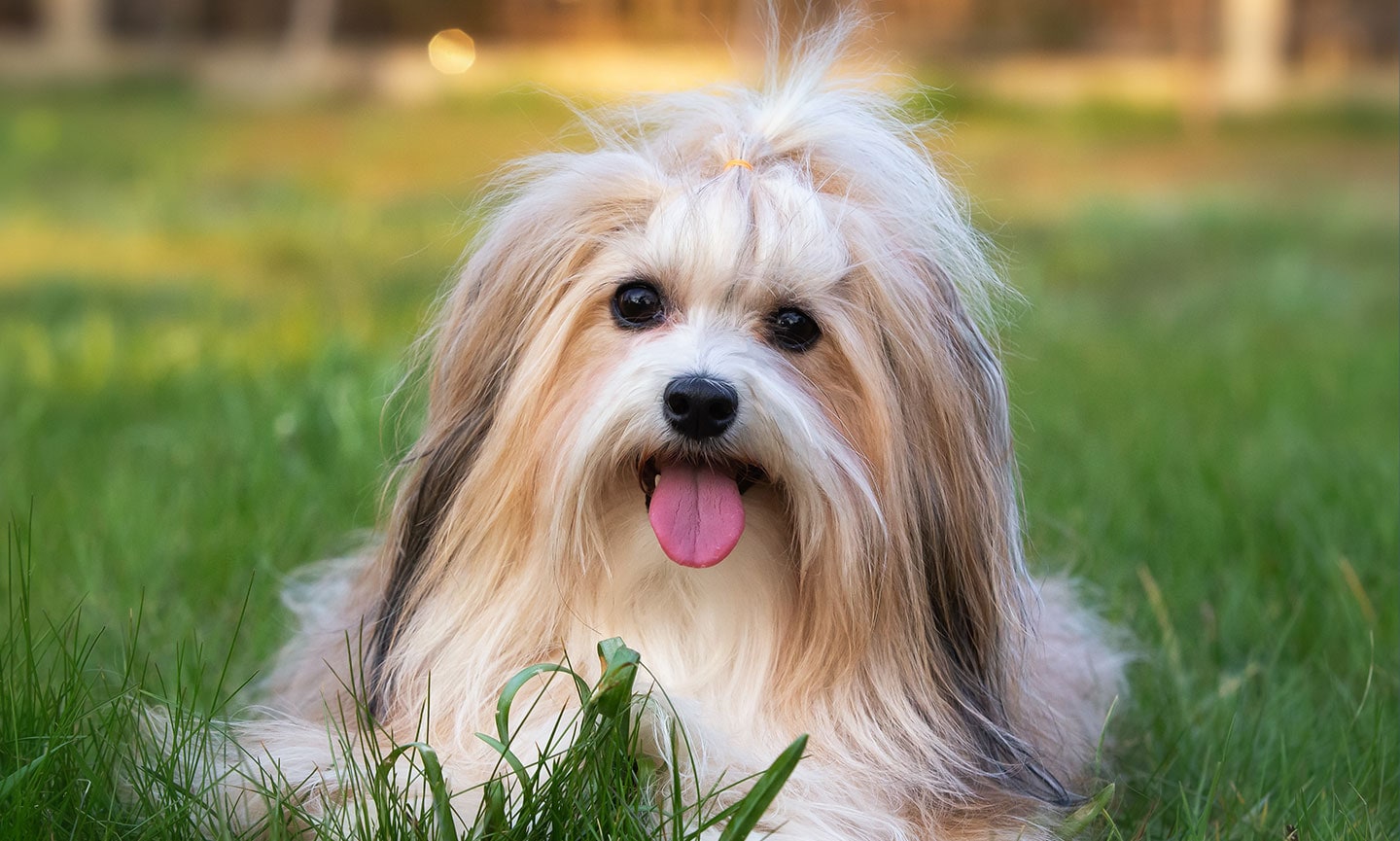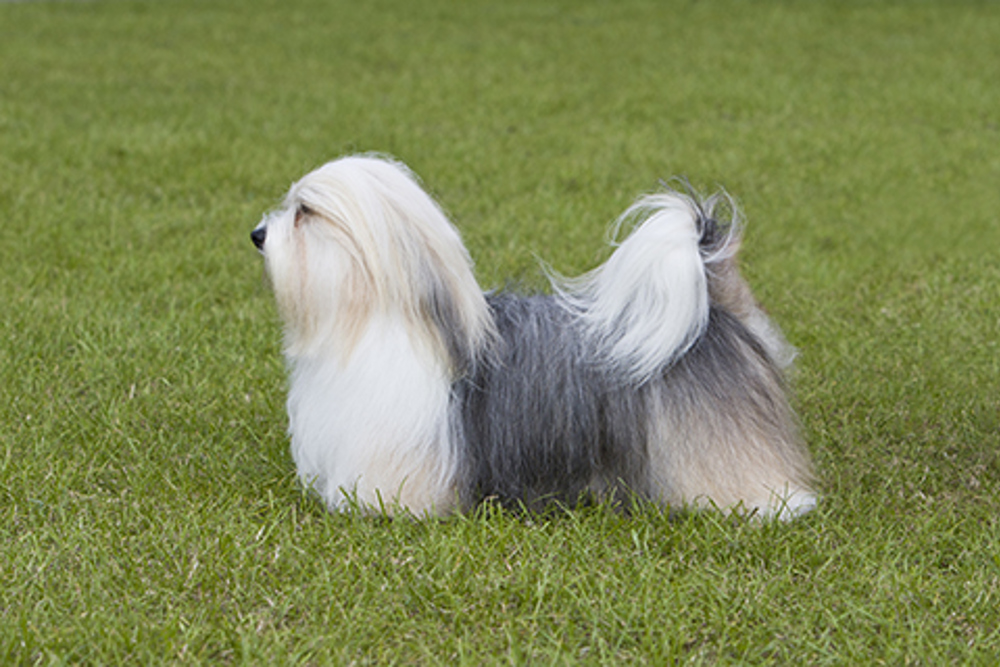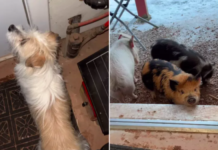Last Updated on July 13, 2021 by Fumipets
Havanese dogs are distinguished by their long, lustrous, and silky coats. It doesn’t stop there, however. They are excellent companions because of their expressive eyes, cuddly size, and loving attitude. Surprisingly, not many individuals are familiar with Havanese history. The name, which is taken from the word “Havana,” holds the key.
They were developed as companions of Cuban nobility centuries ago, in the 1800s. This was due in part to their trainability. As a result, it’s no wonder that this remarkably active Cuban breed is often seen in circus acts. They’re also useful when it comes to helping the disabled.
A healthy Havanese dog may live anywhere from 13 to 16 years. There are variables that may enhance or reduce their longevity, so it’s worth completing your research to ensure that your dog has a good quality of life and that you have many happy years with him. Continue reading to learn more.

Personality
Havanese, unlike other dogs their size, do not make excellent kennel dogs. They seem to enjoy being in the company of their owners. They are energetic, which makes training them simple for their owners. Experts suggest socializing to help children overcome their fear of strangers. It’s worth noting that all of these variables may have an effect on Havanese life expectancy in one way or another. Keeping your Havenese in a kennel for an extended period of time, for example, can create stress. This may lead to other stress-related issues, such as poor feeding habits, which can shorten a Havanese’s lifespan.
Interaction With People And Animals
As previously said, social contact is crucial to the well-being of Havanese people. This should not be an issue since Havanese are usually friendly with other pets as well as people. That is, if they have been properly socialized. Keep in mind that they mostly interact with people in the capacity of watchdogs. However, due to their size, they make terrible guard dogs. Avoid pushing Havanese to associate with other dog breeds that are inherently aggressive, such as the bulldog or the German shepherd. They get along well with other tiny breeds like Chihuahuas and Poodles.
Sanitation
This, too, may have a direct effect on your Havanese’s lifetime. Consider it this way: Bloodsucking parasites adore furry creatures. The Havanese are no different. Brush your dog regularly to check for ticks and fleas and take action if required to avoid having a sick Havanese. This will also help to keep the coat tangle-free and in excellent shape.
When it comes to grooming, don’t over-wash your dog to keep his natural oils in his hair. Wash them no more than once every two weeks, ideally more often if feasible.
Havanese may also have their coats clipped to help them seem neater or if you don’t want a dog with a lengthy coat.

Water
Your dog, like you, need water. Unfortunately, many dog owners seem to be unaware of this. At least one glass of clean water per day is required for your Havanese. However, Havanese drink less on occasion. Keep your dog hydrated in any case. Don’t push the dog to drink more if it doesn’t seem thirsty, or don’t make the dog thirsty to compel it to drink more water. Dehydration in dogs may have serious effects, including tiredness and even death.
Diet and nutrition
For good development and health, Havanese dogs, like other dog breeds, need proper nutrition. The typical weight of these canines is 7-13 pounds, with a height of 8.5-11.5 inches. Dogs’ nutritional requirements vary greatly depending on their age and size.
The first thing every dog owner should understand about Havanese nutrition is that the dogs have unique nutritional and dietary requirements. Despite the fact that dog nutrition is similar for almost all dog breeds, there are variations in energy needs and food kinds based on the health profile of the dog. Proteins, for example, are an important part of a Havanese dog’s diet. Proteins are necessary for the development of healthy cells, muscles, tissues, and organs.
Puppies need a lot of protein to sustain their growth and development. Adult dogs do not need a high protein supplement since they only utilize them to maintain lean muscle mass.
Fat is another component of the Havanese dog’s diet. This is due to the fact that lipids supply these hyperactive dogs with highly concentrated energy sources. Joint-supporting foods are also an excellent addition to a Havanese dog’s diet. The nutrients in these meals are essential for dogs’ musculoskeletal development. The following are some of the best meals for this breed:
Raw milk
Because raw milk is nutrient-dense, it is an excellent option for Havanese dog food, particularly for pups. Fat-soluble vitamins (A, D, and K2), healthy fats, proteins, digestive enzymes, probiotics, immunoglobulin, and minerals including magnesium, calcium, and potassium are all found in milk. Raw milk from goats and cows has been shown in tests to help dogs’ immune and decrease allergies. Raw goat milk is particularly simple to digest and, owing to its reduced lactose content, is less allergic than cow milk.

Bone broth
Most dog breeds prefer bone broth as a dietary source. Crushed bones are simmered for at least 20 hours to make this broth. This procedure breaks down bone nutrients so that they may be absorbed by dogs. The soup is suitable for dogs of all ages, especially pups with weak teeth who cannot chew on bones.
Bone broth aids in digestion, gut healing, liver detoxification, joint pain relief, inflammation reduction, and joint strengthening, among other health advantages. What makes this soup better is that it promotes skin health.
Eggs
Eggs are considered nutritious powerhouses by most dietary experts for dogs and other canine companions. Eggs are 100% bioavailable and simple to include in your Havanese dog’s diet. Amino acids and protein of high quality, Omega 3 fats, antioxidants, calcium, and vitamins A, D, and E are all found in eggs. Additionally, eggs aid in the improvement of a dog’s cardiovascular condition.
Eggs, on the other hand, should be given to Havanese dogs in moderation since they may quickly contribute to obesity. Small dogs can eat half an egg each day, whereas big dogs can eat a whole egg. It is recommended that dogs not be fed eggs on a daily basis, but rather on one or two days.
Mushrooms
Mushrooms are one of Havanese dogs’ favourite meals. This is due to the fact that they contain unique and extremely powerful natural canine therapeutic ingredients. The digestive tracts of dogs may easily absorb mushrooms. As a result, they may be included in your pet’s regular diet, whether young or elderly. Mushrooms are suggested for treating minor dog problems such as allergies because of their strong herbal formulations.
Mushrooms are high in flavonoids, beta-glucans, digestive enzymes, prebiotics, and antioxidants, among other nutrients. These nutrients are renowned for their anti-cancer properties as well as their ability to feed the digestive system.
Behavioural problems
When your Havanese sees a stranger or something he’s curious about, he’ll bark. When the dog is ill or elderly, this may not be the case. Consider making an appointment with your veterinarian, regardless of where or when this occurs. It’s also worth noting that your Havanese may start barking more than it should. Chronic barking is the term for this kind of behaviour. Training is the only way to avoid it.
Overall Health
Havanese dogs, like all dogs, are vulnerable to a variety of illnesses. The good news is that therapy for the majority of illnesses is available. There’s also the fact that there are vaccinations available that can save your dog’s life. With that in mind, keep an eye out for the illnesses listed below. Then, while you’re at it, take note of their symptoms in order to avoid death.

Canine Distemper
Fever, watery eyes, vomiting, coughing, and paralysis are some of the symptoms. Because it hardens both the nose and the footpad, the condition is commonly referred to as a hardpad. It’s one of the most infectious diseases, therefore your Havanese may easily get it from the Havanese down the street. It’s also airborne, but it’s usually spread via sharing bowls. Because the illness mostly affects pups, be especially cautious if you have a Havanese puppy.
It is very advised that you get enough rest and get supportive treatment. This implies that if your Havanese has Canine Distemper, you may need to leave it with a veterinarian to avoid subsequent illness. It’s also a good idea to drink plenty of water. It’s worth noting that having your Havanese vaccinated is the most effective method to keep him or her from contracting Canine Distemper.
Canine Parvovirus
Lethargy, vomiting, weight loss, dehydration, and weight loss are all symptoms. Canine parvovirus, like the aforementioned canine distemper, is extremely infectious. It affects Havanese who comes into close touch with an infected dog’s faeces. Unfortunately, the virus that causes this illness is very simple to transmit yet quite difficult to eradicate. It is also deadly since it affects a dog’s internal organs.
Providing lots of water and electrolytes to your Havanese is part of the treatment. It also has safeguards against subsequent infection. The good news is that vaccinations are available to protect against the illness. Make sure your Havanese is taught to stay away from any faeces.
Heartworm
The primary symptoms are severe in this case. Respiratory issues, coughing, tiredness, weight loss, and heart disease are among them. Parasites infect the heart and cause illness. They then go on to cause havoc in the lungs and blood vessels. Mosquitoes, strangely, are the carriers of the illness. The illness is not just prevalent in cold and humid climates, contrary to popular belief. It’s also a problem in arid regions.
In terms of therapy, anticipate a strict and comprehensive course of antibiotics, steroids, and, in some instances, arsenic injection. However, there are certain preventative actions that may help your dog. The easiest way to avoid it is to make sure your Havanese gets yearly blood testing and frequent topical injections. This is particularly essential if you and your dog are always on the go.
Rabies
Rabies is the most prevalent canine illness on the planet. Hyperactivity, fever, burning or tingling on wounds, and discomfort are among the signs that accompany it. Because the illness is so readily transmitted to people, it is very deadly. If left untreated for 48 hours, it may lead to death. It is caused by a virus that has the same name as the illness – rabies. It’s readily transmitted via saliva or a bite from an infected animal. However, you should not be concerned since rabies vaccination is accessible in many nations. However, once a Havanese or any dog has contracted rabies, there is no cure available. That is why it is so important to vaccinate your Havanese and keep them away from rabid animals.
Lyme disease
It’s also just as deadly as rabies. Limping, lack of appetite, fever, and discomfort are some of the symptoms. Lyme disease, unlike rabies, is caused by a bacterium transmitted via tick bites. The deer tick is the most deadly vector that may transmit the illness. Once it enters the bloodstream, it travels rapidly to joints, making mobility difficult, if not impossible, for your dog. When it comes to preventive, vaccination is an option. The use of antibiotics, on the other hand, is excellent in terms of therapy.
Kennel Cough
It causes a dog to cough, sometimes for hours, as the name implies. Because the virus that causes the illness produces inflammation and irritation of the airways, this occurs. It’s called kennel cough by veterinarians because it spreads rapidly among dogs and other animals in close quarters in places like dog daycares, shelters, and dog parks. When an infected animal shares a dish, a blanket, or even a leash with an uninfected dog, the situation becomes much worse. All dogs are at risk, but puppies and dogs that have not been vaccinated are more susceptible to kennel cough than their vaccinated counterparts. Cough suppressants and antibiotics are used in conjunction with plenty of rest.

Leptospirosis
Muscle pain, vomiting, jaundice, and lethargy are all signs of leptospirosis. It is caused by a dog coming into touch with another dog that is diseased. Treatment is feasible since the illness is bacterial. It is essential to remember, however, that the disease-causing leptospira bacteria may be found in natural water sources such as rivers, lakes, and streams. It’s also prevalent in soil, so your Havanese may pick it up by sniffing at a place where an infected dog has discharged pee.
The two most effective treatment options are supportive care and antibiotic usage. It should be emphasised, however, that when it comes to Leptospirosis and almost all other bacteria-caused dog illnesses, prevention is strongly advised.
What Other Factors Impact What is the average lifespan of a Havanese?
Havanese dogs have a lifespan of up to 15 years. However, there are a number of variables that may influence whether or not your Havanese will live that long. Everything comes down to how well you care for your dog at the end of the day. Keep in mind that certain situations are readily avoidable. Excess weight, for example, may shorten your dog’s life expectancy. To that end, make sure your dog is on the proper nutrition at all times. Make it a practice to keep your dog active as well. If you can, have him or her run about every day. In any case, Havanese are known for being cheerful and game-loving, so you should have no trouble working them out.
Keep in contact with your dog’s veterinarian as well. Make as many visits to the veterinarian as possible. This is important since there are illnesses and problems that you may not be aware of until you see a veterinarian. The illness may then be treated promptly, saving you not just money but also the dog’s life. Keep in mind that if you see your veterinarian on a regular basis, you will have plenty of time to vaccinate your dog. This will give you peace of mind that your dog will not be harmed if a dog illness that may affect yours spreads. You may also be certain that your dog will not infect other dogs or people with harmful germs or viruses.
Finally, make your dog feel at ease. After all, he or she is a buddy of yours. The amount of years your Havanese will live is sometimes entirely dependent on therapy. The breed is naturally clean and friendly to people. This means you’ll have no trouble creating a comfortable environment for your Havanese inside. However, you will need to train your Havanese. This will save you money and make it easier for you and your family to get along with your Havanese.


















